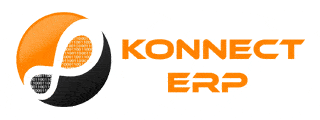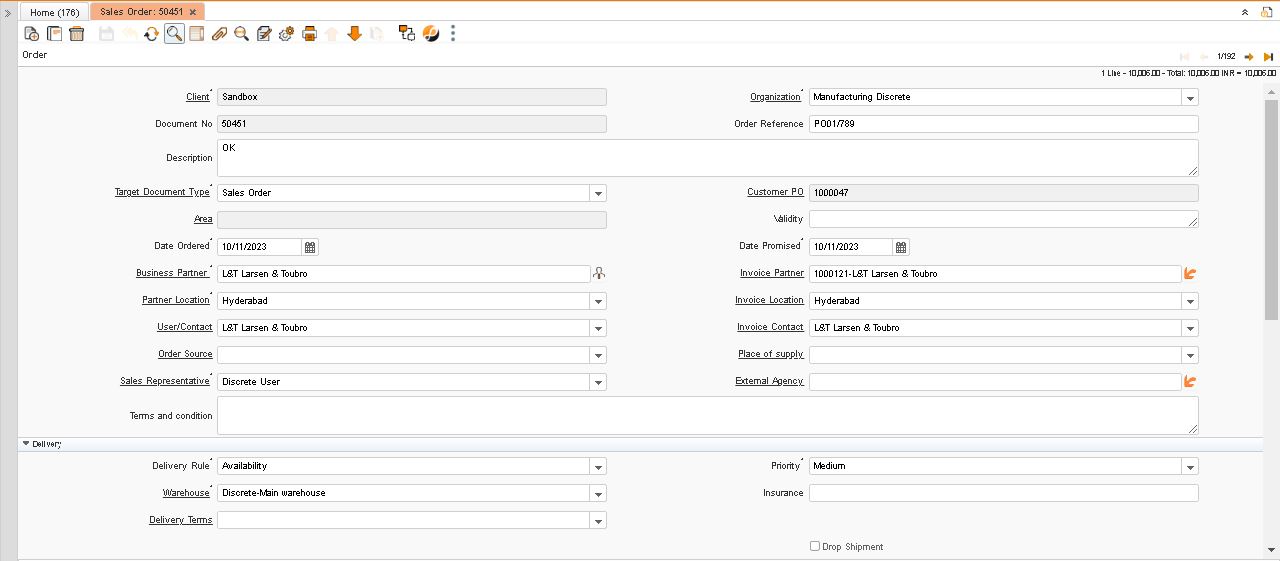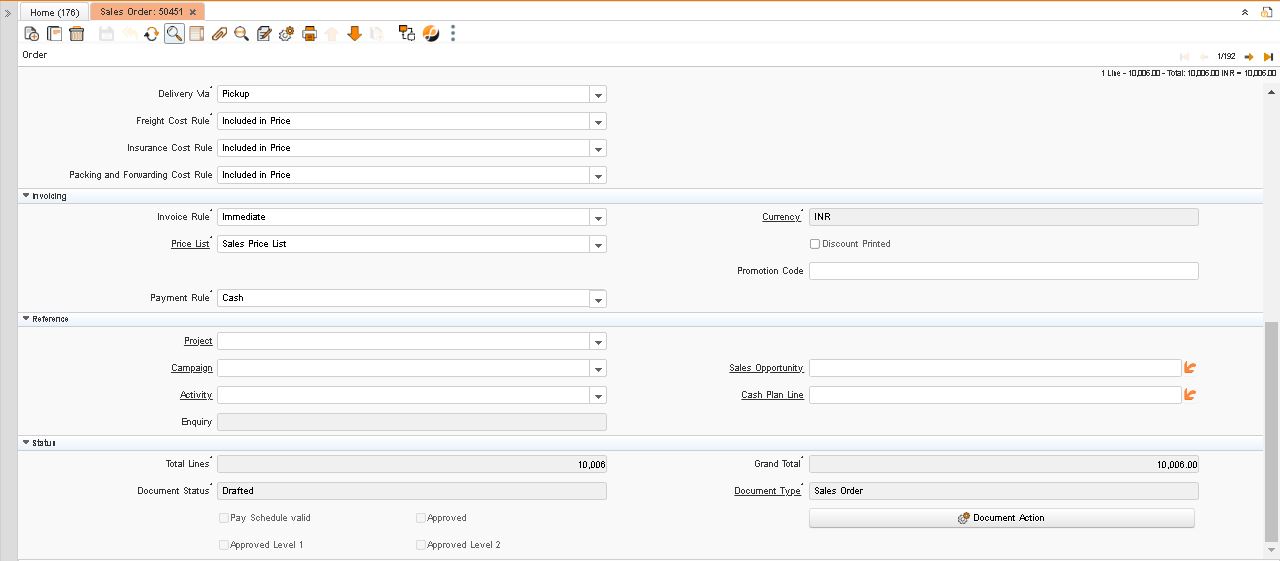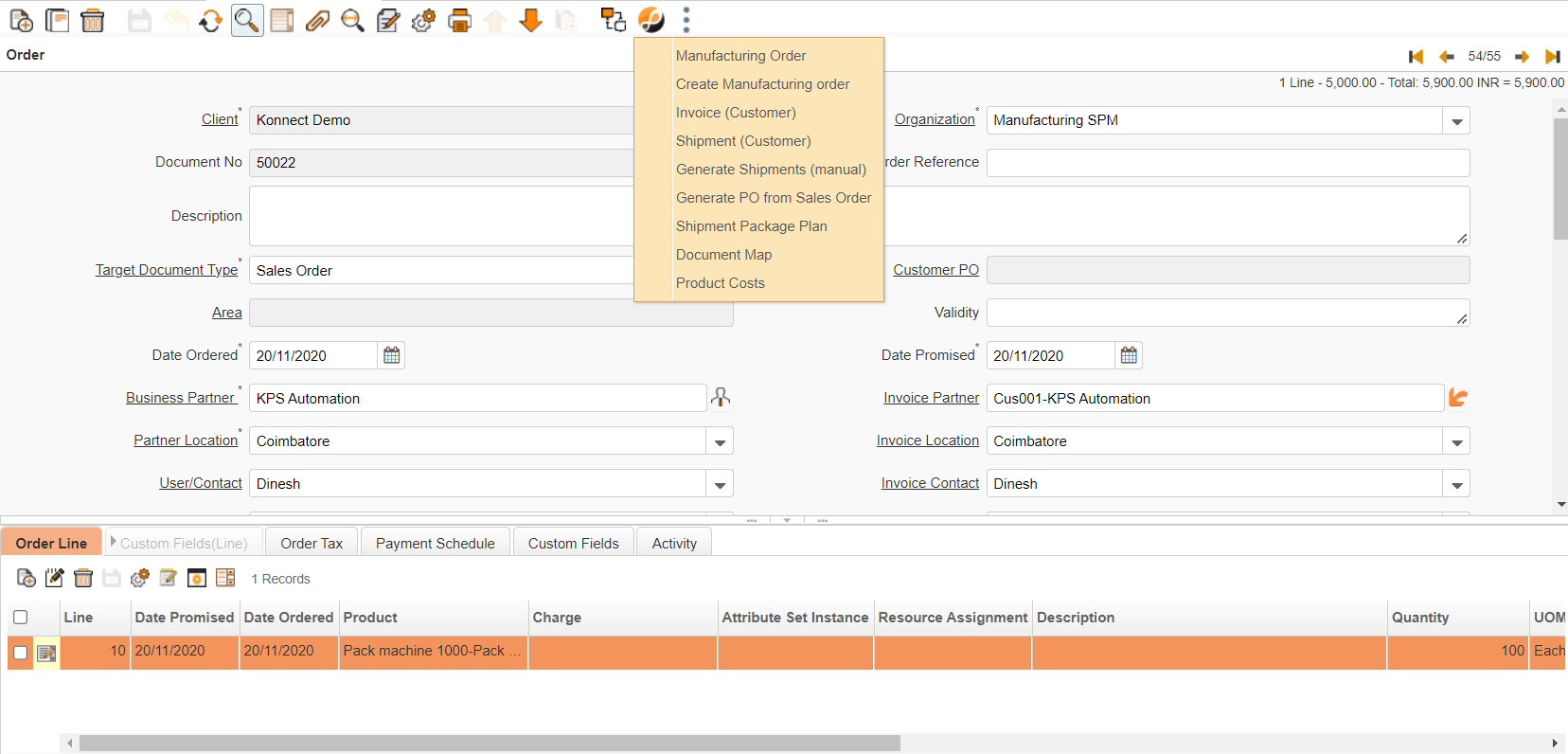Sales Order Header
Critical Fields:
1. Business Partner: We can select existing/new customers here and this field is used to maintain customer
2. Partner location: This field is updated automatically, based on the business partner
3. Warehouse: This field is for Product storage purposes, Select a warehouse where the final product is stored.
4. Date promised: Estimated delivery date of the product to the customer
5. Price list: The price list will be selected in the product master once we select the product price list will display automatically and the user can also select manually
6. Sales Representative: This field is used for sales rep updating purposes, It will display from the employee master when the sales rep field is checked
7. Terms and conditions: This field is used for our internal terms and conditions updating purpose (Payment terms etc)
8. Delivery Terms: To update the Delivery Terms (By Air, By courier, etc)
9. Delivery Rule: This field helps to select the timing of the delivery
9.1) After Receipt: It defines the order to be paid after receipt
9.2) Availability: This will ship goods as they come into stock, regardless of whether there will be outstanding quantities for the order or not.
9.3) Complete Line: This will generate shipments whenever stock to fulfil any individual order line is available.
9.4) Complete Order: This will create a shipment when the stock to fulfil the entire order is available.
9.5) Force: This will cause a shipment to be generated for the full quantities specified in the order, regardless of whether they are in stock or not.
9.6) Manual: This will prevent shipments from being automatically generated.
10. Delivery Via: indicates how the products should be delivered
10.1) Pickup: After the Product is ready to ship, customers will take the product in their own vehicle.
10.2) Delivery: Delivery is done by the vendor itself to the customer.
10.3) Shipper: The Shipper indicates the method of delivering products via ship, aeroplane..etc.
11. Freight Cost Rule: Method for charging flight
11.1) Calculated: We can calculate the freight cost
11.2) Fix price: Fixed the freight cost
11.3) Included in Price: Already included in the product price list
12. Insurance Cost Rule: Method for charging insurance
12.1) Calculated: We can calculate the insurance cost
12.2) Fix price: Fixed the insurance cost
12.3) Included in Price: Already included in the product price list
13. Packing and Forwarding Cost Rule: Method for charging Packing and Forwarding
13.1) Calculated: We can calculate the Packing and Forwarding cost
13.2) Fix price: Fixed the Packing and Forwarding Cost
13.3) included in the price: Already included in the product price list
14. Payment Rule: This field used to select the payment type
14.1) Cash: After receiving the invoice, the customer pays the invoice amount through cash only
14.2) Check: After receiving the invoice, the customer pays the invoice amount through a check
14.3) Credit Card: Payment amount paid to the vendor to use a Credit Card
14.4) Direct Debit: Payment amount paid to direct vendor account number
14.5) Mixed POS Payment
14.6) NEFT
14.7) On Credit
14.8) RTGS: Payment amount paid to RTGS
15. Payment term : The terms of payment(immediate ,30 days, etc
16. Area Field shows information like Branch, Division, etc...
17.Order Source : It is used to select the Source Details for this Document from the Order Source Master.
18.Order Source Type : It is a master window and it is used to maintain the Order Source type Based on the Order Source
19.Order Source Category : It is a master window which is used to select the data from the master and it is related with the Order source type.
20.Order Source Activity : Used to maintain the activity and It is a master data related with the Order Order Source Category.
Critical & one-time setup fields:
1. Organization: This field is used to select the organization
2. Target Document Type- This Field is used to select the type of document that you are going to process
Non-Critical Fields:
1. Project- If this order is processed against a project user can tag the project for tracking.
2. Campaign: This field is used to select the campaign type
3. Customer PO: This window field is directed to the Customer PO window to see the product's requirements.
4.External Agency : It is used to select the existing business partner name.
Zoom conditions:
1. Shipment customer
2. Invoice (customer)
3. Invoice payment schedule
4. MRP
5. Shipments package plan
6. Manufacturing Order
Customization:
1. In the sales Order Header, the Product Search option in the Process button, helps to search the product by a combination of Attributes that we already configured in the Product search configuration window.




No Comments